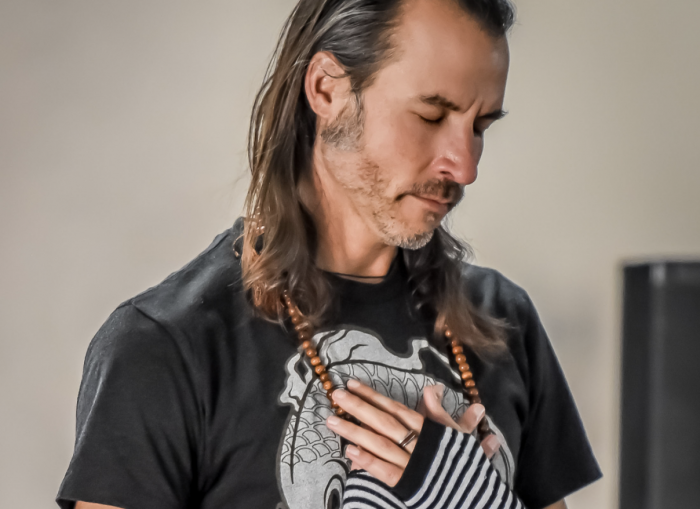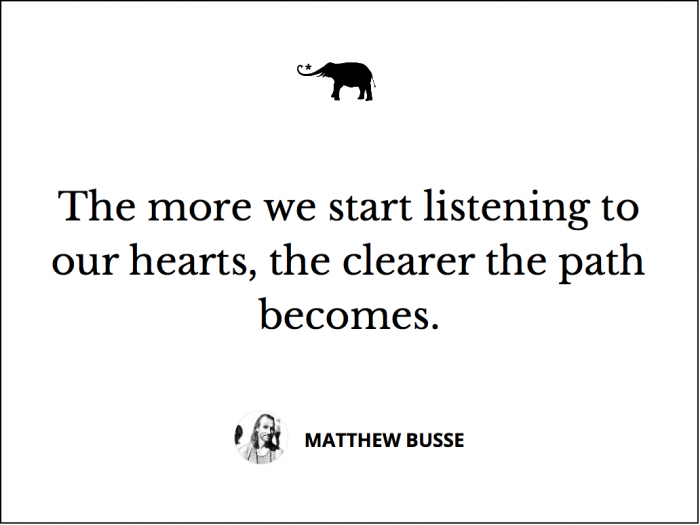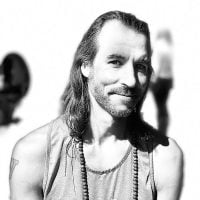When we struggle to love ourselves, all of our other relationships—romantic, familial, friendly—will be troubled as well.
Here is a free, simple test to help us assess our relationship with our own hearts. No, it’s not an online questionnaire with a bunch of multiple-choice answers that never quite express the nuances of how you actually feel.
Instead, make your way to the nearest mirror, look yourself in the eyes and say, “I love you.”
Go, do it now; you might be surprised how it makes you feel.
If you don’t have a mirror handy, click off whatever device you’re reading this on and use the black mirror in your hand. Go ahead, try it—tear yourself away from the screen for a moment and have a real-life experience.
How did it feel?
If your heart didn’t throb with tenderness and your toes didn’t tingle with joy, that could be a sign you struggle to love yourself, likely because of trauma, repressed emotion, and a lifetime of conditional love from family, peers, and social institutions.
If just the thought of looking yourself in the eye and saying “I love you” makes you throw up a little in your mouth, you’re not alone. Many of us struggle to love ourselves because a lifetime of conditioning has convinced us—on some deep, unconscious level—that we’re not worthy of love.
The love we experience growing up is often conditional: our caregivers expressed love when we behaved, our teachers expressed approval when we worked hard in school, and our peers expressed acceptance when we conformed to the group.
Rarely are we taught that we are worthy of love exactly as we are. Instead, we internalize a narrative telling us we must do or become something different before we are worthy of love.
On top of that, we may have suffered trauma or wounding from our traumatized or wounded family, teaching us to hide our hearts, wrap them in a protective shell to guard ourselves against more suffering.
And we probably never learned to healthily express our emotions, so all the pain, sadness, and anger we repress glom onto that protective shell, forming an impenetrable callus that keeps us safe but also prevents us from feeling the love we so desperately crave.
When we can’t love ourselves, we’re going to struggle to feel loved by another person, and we’re going to attract people into our lives who will continue to reinforce the idea that love is conditional, that we don’t deserve to be loved as we are.
When we truly love ourselves, when our hearts are full of unconditional love for our own being, then we can freely give love to others without a need for a reciprocal response.
The stronger your negative response to telling yourself, “I love you,” the thicker that protective shell you’ve wrapped around your heart has become.
To dissolve this impenetrable rind, we need to integrate our trauma, process our repressed emotions, and find a source of unconditional love. There’s no book, online course, or weekend retreat that will miraculously remove this hardened husk from our hearts because the exact nature of the shell is unique to each of us, based on our particular life experiences.
When we’re ready to reconnect with our heart, we’re probably going to need help of some sort—it could be anything from clinical therapy to Reiki to crystal healing to meditation.
Everyone’s path to rediscovering their heart will be different, depending on the conditioning we developed during our life, but they all start with a burning desire to unconditionally love ourselves, to feel the love in our hearts we all deserve.
My own journey toward unconditional love started with 10 years of study under a meditation teacher, then two years of semi-nomadic wandering, followed by a life-changing yoga teacher training, and culminated in one-on-one work with an intuitive healer.
That’s the unplanned, meandering path I blindly stumbled along before I could finally shake myself free of feelings of unworthiness and really begin to love myself. Your path will be different, and you’re probably already on your way, whether you realize it or not.
Each of us knows, intuitively, what we need to heal our hearts. All we need to do listen to that little voice, our intuition, our gut, our heart—whatever you want to call it. We all have an internal compass guiding us to the people, places, and experiences we need to reconnect with our hearts.
When we’re ready to love ourselves, then our intuition will lead us down the right path. It might be full of hurdles and pitfalls, it might lead us off a cliff into a fiery crash or double back on itself in seemingly endless loops, but deep down inside, we already know the way.
The more we start listening to our hearts, the clearer the path becomes.
Here’s a little exercise to help you on your way. Go back to that mirror and look into your eyes again.
If holding that eye contact makes you uncomfortable, it’s okay. Just stand there in front of the mirror and begin to slow and deepen your breathing. Inhale slowly to a count of four, then exhale slowly to a count of four. Keep breathing for a few minutes, deeply and slowly, and the discomfort might begin to lessen. And maybe, just maybe, you’ll be able to sneak a peek at your eyes and squeak out a little “I love you.”
The discomfort we feel arises when our nervous system is triggered by our emotional scars.
Slow, deep breathing triggers the parasympathetic nervous system to calm and relax the body and mind. Our breath is a powerful tool to help us soothe our often-overstimulated nervous system, and calming our triggered emotional wounds helps us disentangle ourselves from the mess of conditioning we’ve accumulated throughout our lives.
If anything I just said resonates with you, consider checking out my ongoing series on embracing unconditional love.
You can also join my weekly Zoom conversation; it’s a safe space where we practice reflecting unconditional love to each other, as well as discuss mindful techniques to examine our emotions and meditation practices to cultivate love in our heart, like this one:










Read 20 comments and reply